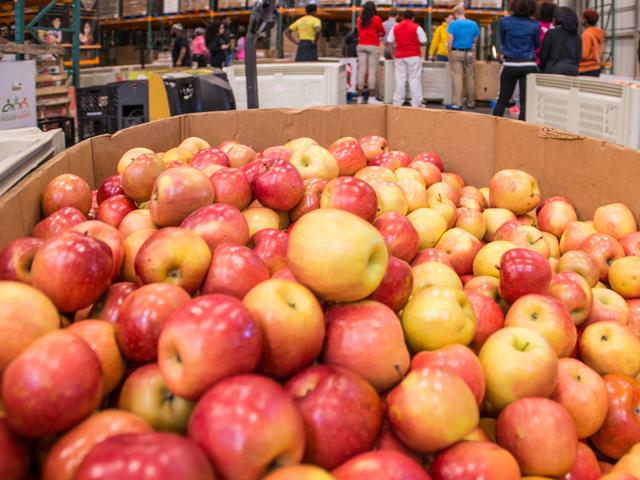Ag Policy Blog
Vilsack, USDA Facing More Heat Over Tribal Food Program
Agriculture Secretary Tom Vilsack acknowledged USDA failed to properly deliver food to more than 52,000 Native Americans over the summer.
A USDA contractor repeatedly didn't deliver food meant for Tribal communities.
USDA distributes more than 140 different food items to as many as 276 Tribes through the Food Distribution Programs on Indian Reservations – (FDPIR) or "fuh-dipper." FDPIR, which was created in 1977, provides food deliveries to Tribal food banks for more than 52,000 people and has an appropriated budget of $165 million.
The idea behind the food program is alleviate stress for Native American communities that don't have access to healthy foods.
"Unfortunately, mistakes were made that created more stress," Vilsack told the Washington Post.
As the North Dakota-based Buffalo Fire reported in early August, FDPIR has been having problems with shortages since May when USDA dropped one of the two contractors that were running the program. Since April, FDPIR has tried to rely on just one warehouse distributor, Paris Brothers Inc., in Kansas City, Mo. It hasn't gone well.
"Delayed, incomplete or missing deliveries increased after the U.S. Department of Agriculture switched to a single distribution and warehouse provider for all organizations providing food through the programs," the Buffalo Fire reported.
A bipartisan group of seven senators wrote USDA on Aug. 23 expressing their concern about the crisis in the program and calling for an immediate fix. As the senators highlighted in the letter, one reason FDPIR exists is the lack of any grocery stores in remote Tribal areas. So FDPIR distributions are considered more beneficial for Native Americans in some cases than simply participating in the Supplemental Nutrition Assistance Program (SNAP).
P[L1] D[0x0] M[300x250] OOP[F] ADUNIT[] T[]
Households participating in FDPIR have not had consisted food deliveries in more than four months, the senators wrote. "This is unacceptable." To fill the gaps, Tribal families are working with food banks and some Tribal governments have been using their own emergency funds to buy food for families.
"We urge USDA to engage in emergency Tribal consultation and restore food deliveries and operation of the FDPIR program. USDA must promptly establish plans to prevent a situation like this from occurring in the future," the senators wrote Vilsack.
Vilsack told the Washington Post that USDA is implementing some short-term fixes, which includes imposing a seven-day work week at Paris Brothers warehouse and sending both military and FEMA people to the warehouse. Vilsack told the Post USDA now has a 20-person team working with Paris Brothers.
The secretary spotlighted some of the bureaucracy that led to the food problems. Two companies – Paris Brothers and Americold – had been providing food under the program since 2007, but the federal government reached its limit on how many times they could extend a contract before putting it out for bid. So, USDA put out a request for proposals in August last year. Out of seven bids that came back, Paris was the only one that met all of the criteria.
Vilsack said the bid committee should have looked harder into whether Paris could handle the job on its own, the Post wrote.
"Paris Brothers needs to do some soul searching as well," Vilsack told the Post. "They felt they could do this … they had some challenges hiring people and understanding the magnitude of what they were taking on."
Tribal leaders spent months trying to tell USDA about the problems. They wrote Vilsack in August and pointed out hundreds of thousands in fines the company has received. Vilsack declined to talk about fines, but said Americold now has been given a six-month contract to deal with the issue.
The secretary also said there would be a complete review of the situation. "Obviously, it's unacceptable. People depend on us."
On Sept. 11, the House Subcommittee on Nutrition, Foreign Agriculture and Horticulture will hold a hearing on "severe food distribution shortages in Tribal and elderly communities."
See, U.S. Senators push USDA to rectify shortages at tribal food assistance programs, https://www.buffalosfire.com/…
Also see, 'Indian Country is hurting:' How feds failed Native American food program,
https://www.washingtonpost.com/…
Chris Clayton can be reached at Chris.Clayton@dtn.com
Follow him on social platform X @ChrisClaytonDTN
(c) Copyright 2024 DTN, LLC. All rights reserved.






Comments
To comment, please Log In or Join our Community .